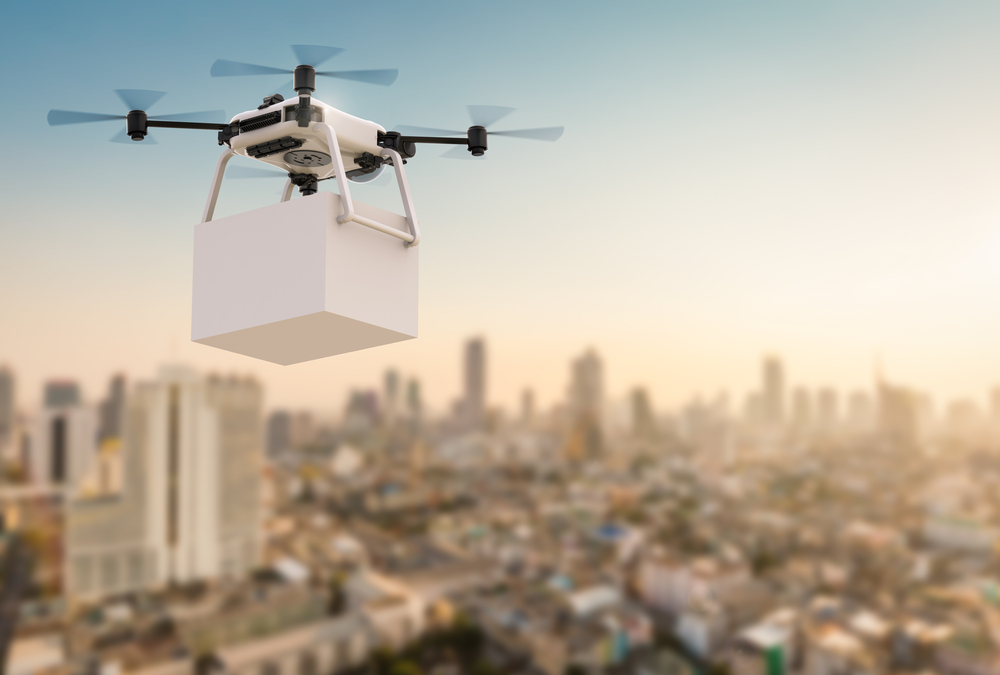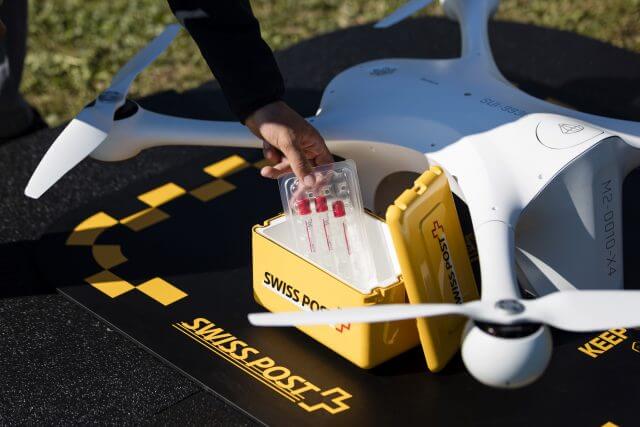
Delivery by drone is becoming more of a reality
Shifting regulations and advancement in technology has created a rise in delivering via drone. Already in America, drones can deliver critical drugs, supermarket orders and pizza. This increase is partially due to the effect COVID-19 has been having on the pharmaceutical and e-commerce industries in particular.
Since October 2019, American pharmacy store chain, Walgreens in collaboration with FedEx and Wing, has been piloting delivery via drone service to the people of Christiansburg, Virginia. Examples of deliverable items involve essential needs like toilet paper, non-essential products like candy and even pre-made cold care packs. The rise of COVID-19 facilitated Walgreens to begin serving, by drone, those who were unable to leave the house as a result of lockdowns.
These drones are able to pick up packages, fly to designated sites, hover over the precise delivery areas set by the customers, then gently lower the package to the ground.
Walgreens’ enthusiasm to deliver by drone is a prime example of how this technology has the ability to adapt to help both people and businesses cope with difficult situations.

Another instance where drone delivery helps to bridge the gap includes targeting healthcare. Matternet, a drone logistics platform developer, works with hospitals that have large campuses and need to reduce their critical medical supply exchange time. Staff are able to mount their supplies onto the drone which then flies between different buildings’ drone stations, cutting waiting time on patient test results. Andreas Raptopoulos, CEO of Matternet explains:
In places where speed of delivery matters, there’s no better way to get things delivered than by air
Matternet’s work with healthcare professionals helps to solve the problems COVID-19 has created by limiting the need to go into a store and therefore potentially contracting the virus, or having a delivery service come into a community.
Similarly, German company Wingcopter won funding in May of this year, for an 18-month project to distribute coronavirus test kits in Rawanda and Malawi with the hope of limiting the spread of the virus.
Drone delivery also solves a problem of delivering to remote areas where conventional trucks may not be suitable. DHL has managed to shorten transportation times from 30 minutes to eight, by delivering parcels to a community in the German mountains via drone.
In the UK, companies such as Tesco and Amazon are also taking steps to bring commercial drone deliveries to a mass scale.
The somewhat limited experience that these companies have with drone deliveries could, however, bring challenges for the future. For example if more drones start to cram into dense city areas, coordinating them efficiently could pose problems.
It just goes to show, the sky’s no longer the limit!





